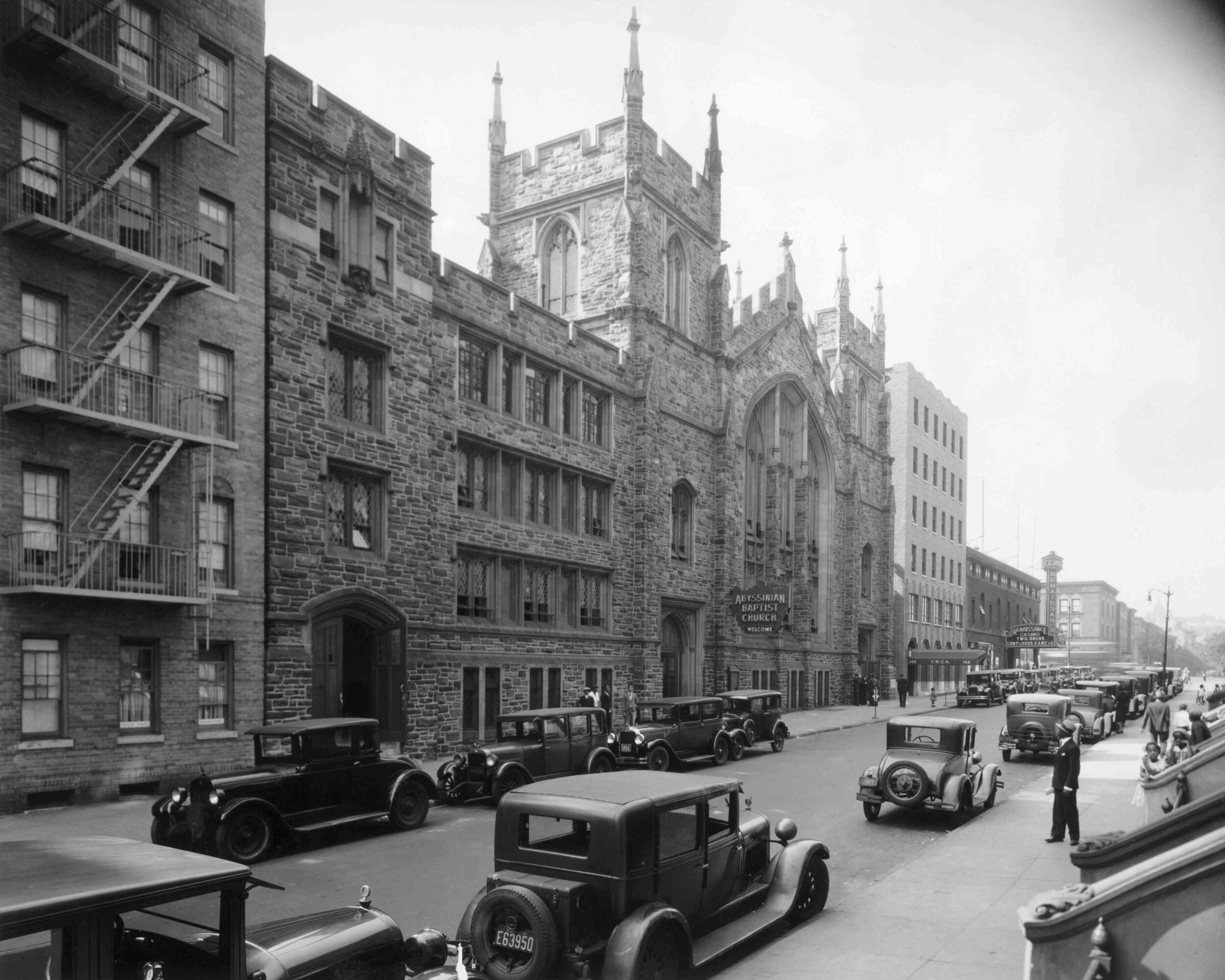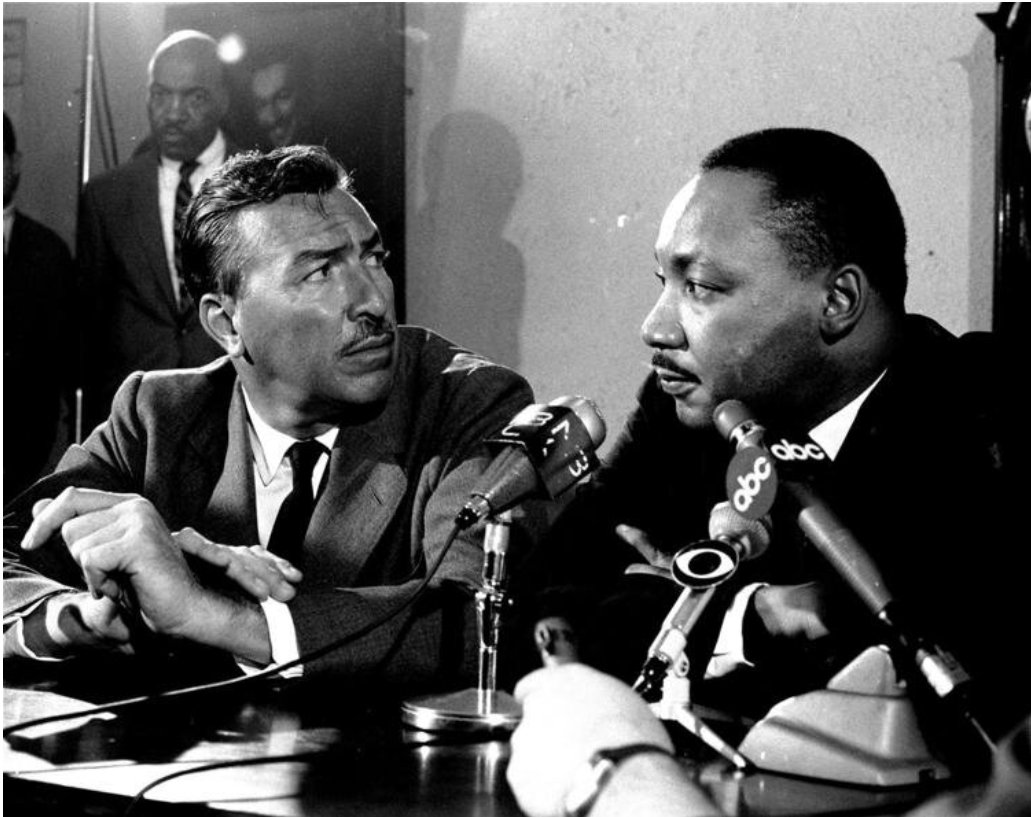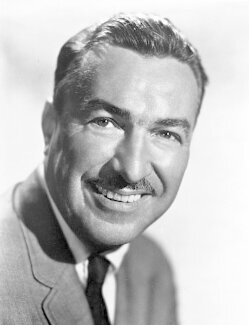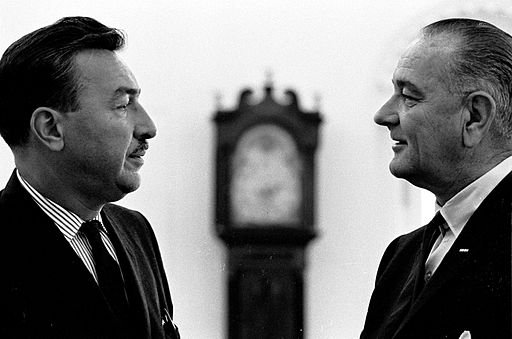
“Unless man is committed to the belief that all mankind are his brothers, then he labors in vain and hypocritically in the vineyards of equality.”
-Adam Clayton Powell Jr.

HARLEM
Powell’s public figure status grew during the Great Depression. In 1937, Powell became the pastor of the Abyssinian Baptist Church in Harlem. He followed his father’s footsteps who took on the role prior. As pastor, he organized fundraisers to help expand the church as more African Americans moved north during the Great Migration. More than 10,000 members joined. The increased African American audience led to the idea of creating a newspaper focused on educating readers on civil rights issues, and struggles dark-skinned people face in the United States. He called it The People’s Voice. The paper ran from 1942 to 1948 where it closed after being accused of communist relations.
Not only did he help create a space where people felt welcomed to practice their faith, but he organized events to help African Americans find jobs. He used his status of chairman of the Coordinating Committee for Employment to put pressure on businesses to hire black employees at high level positions. The “Don’t Buy Where You Can’t Work” campaign brought awareness to discriminatory hiring practices at the time. During the 1939 New York World’s Fair, Powell organized a picket line on 125th street. As a result, more than 500 African Americans were hired at the fair. In 1941, Powell organized the nation’s first racially motivated bus boycott. He helped secure jobs for black drivers in the city’s transportation system.
CONGRESS
Adam Clayton Powell Jr. was what the United States House of Representatives archives calls “an unapologetic activist,” who served in the House of Representatives for 12 terms. Throughout his 12 terms from 1945 to 1971, Democrat Clayton Powell represented many New York territories. A man with a background in the Baptist church and African American communities, he was a powerful crusader for civil rights and anti-discrimination. His first run in politics came from winning the New York City Council member spot in 1941 and eventually ran for a vacant House seat representing Harlem in 1944. Clayton Powell ran on a platform dedicated to the advancement for African American rights, a ban on lynching, confronting racial discrimination in the military of World War II and other political/social issues. He was overwhelmingly popular by Black voters, which garnered him about 90% of the Black vote in Harlem; however, was highly controversial to fellow local leaders. Despite the battle for the House seat, he became the first Black man to represent New York.
While in Congress, Powell served on the Indian Affairs, Invalid Pensions, Education, and Labor committees. During his first term in office, he introduced the legislation called the Powell Amendment which would extend civil rights to the District of Columbia residents outlawing lynching, poll taxes, and discrimination in transportation, housing, and the armed forces. The Powell Amendment was included into the Civil Rights Act of 1964 to which the Black community coined the nicknamed for him “Mr. Civil Rights.”
Powell always looked for ways to confront racial inequality by taking Black constituents to the whites-only House restaurants, campaigning to desegregate press galleries, and loud (sometimes physical) confrontations with other members of congress who were dedicated to segregation like John E. Rankin from Mississippi. From “Power and Love; When Adam Clayton Powell Jr. Met Hazel Scott, Sparks Flew,” Powell publicly condemned Rankin’s comments against Jews and Blacks stating “I am not a member of that great minority, but I will always oppose anyone who tries to besmirch any group because of race, creed or color. Let us give leadership to this nation in terms of racial and religious tolerance and stop petty bickering in this body.” He even spoke out against the Daughters of the American Revolution (DAR) organization’s long-standing history of racial prejudice, especially when they refused to allow Powell’s second wife, he great jazz pianist Hazel Scott, to play in the Constitution Hall.
Powell’s political force also garnered much controversy when he broke with the Democratic Party to endorse Eisenhower for president because of his dissatisfaction with Democratic nominee Adlai Stevenson. Southern Democrats sought to strip Powell of his seniority until the NAACP urged New York’s delegation and chairman of the Judiciary Committee to not take punitive measures. Many examples such as this cause other House representatives to come against Powell by denying him subcommittee chairmanship even though he was already a higher-ranking Democrat. Nevertheless, his political career - sidestepping political scandal and enemies, thrived. Clayton Powell became chairman of the Committee on Education and Labor which he held for three terms. During this time, the committee approved more than 50 measures authorizing federal programs which increased the minimum wage, school lunches, educational training for the deaf, and addressed student loans. According to Richard F. Fenno’s Congressmen in Committees, one committee member said, “We have been a more productive committee in the last year and a half than the New Deal. You talk about Roosevelt’s one hundred days—what the hell, look at what we’ve done. It’s been under Powell’s chairmanship and you’ve got to give him credit for that.” This legislation, which also created standards for wages and work hours and provided aid for both elementary and secondary school public libraries, was all legislation that influenced much of John F. Kennedy’s policies. Powell was a huge supporter of President Kennedy and Lyndon B. Johnson and benefited from the administration’s agendas.
Unfortunately, in 1967, the House Democratic Caucus along with Powell’s congressional opponents removed Powell from the committee chairmanship after citing his vacations abroad, “erratic” work style, and “unpredictability” as some of the many reasons. However, Harlem residents sent an impactful message to Congress, displeased with their attempts against Powell, advocating against Congress’s decisions. In the following special election of 1967, Powell won 86 percent of the vote but denied taking his seat in the House and instead went to the Bahamas. He was eventually re-elected again for his final term in 1968 but the House voted to deny him of his seniority. However, in 1969, the Supreme Court justified Powell by ruling that the House acted unconstitutionally when excluding him from the 90th Congress. To this Powell responded, “From now on, America will know the Supreme Court is the place where you can get justice.” This would be his last term in office followed by retiring as a minister in the Abyssinian Baptist Church in 1971. Powell described his political career as the following, “As a member of Congress, I have done nothing more than any other member and, by the grace of God, I intend to do not one bit less.” The power of his influence and impact on Black community, other minorities, the country, and presidential policies, is undeniable.
For further information:
WORK ABROAD
While Adam Clayton Powell’s heart remained in Harlem, his intellectual curiosity and desires for social justice also took him abroad.
He attended the Indonesian Bandung Conference in 1955 despite initial dissuasion from U.S. politicians due to the emerging Cold War. In 1957 he also traveled to Ghana to commemorate their independence (to which Martin Luther King was also in attendance). Clayton Powell remained heavily invested in African and Asian countries and continually critical of European colonization. While commemorating newly independent African an Asian nations from colonizers, communist reporters asked Powell about the abuse of Black people in the United States to which Powell was deeply touched by and noted he was a great example of improving circumstances.
However, when returning to the U.S. he urged then President Eisenhower and other American politicians to take a firm stance against colonialism and to help aid the emerging third world countries. He made speeches on the House Floor celebrating the newly independent Ghana, Indonesia, and Sierra Leone for the purpose of creating awareness on international issues of colonialism. Additionally, he encouraged the State Department to promote American pop culture abroad, especially jazz (influenced by his second wife Hazel Scott) as a way to counteract Soviet Union influence internationally. Overall, he was a man of the world who was fascinated by culture, language, and foreign policy.
LEGACY
After being diagnosed with prostate cancer in 1969, Powell retired from the Abyssinian Baptist Church. He spent time at his home in the Bahamas until becoming severely ill where he then flew to the Jackson Memorial Hospital in Miami. Powell died on April 4, 1972. He was 63.
“There is no future for a people who deny their past.”
Following Powell’s death, New York City officials renamed Seventh Avenue in Harlem to Adam Clayton Powell, Jr. Boulevard. The street spans 2.2 miles between 110th and 153rd streets. In 1983, the Harlem State Office building was renamed the Adam Clayton Powell Jr. State Office Building. It sits at the corner of West 125th and Adam Clayton Powell Jr. Blvd. It wasn’t until 2005 when the 11-foot bronze sculpture of Powell was installed outside the building. Surrounding the base features the infamous quote from Powell’s autobiography: “Press forward at all times climbing towards that higher ground of the harmonious society that shapes the laws of man to the laws of God.” The sculpture was designed by Branly Cadet.
The documentary Adam Clayton Powell was released in 1989. The film was nominated for an Academy Award for Best Documentary.
In 2002, a cable television film titled Keep the Faith, Baby, aired on Showtime. The film tells the story of Adam Clayton Powell Jr. and his path towards joining congress and becoming an activist for discrimination. Adam Clayton Powell Jr. is portrayed by Harry Lennix who won a Black Reel Award for the role. Additionally, the film was nominated for three NAACP awards.
Several books have been written about Adam Clayton Powell Jr. Most notably, the biography King of the Cats: The Life and Times of Adam Clayton Powell Jr. by Wil Haygood was published in 1993. Other books include Adam Clayton Powell, Jr.: The Political Biography of an American Dilemma by Charles V. Hamilton, Black Religious Leaders: Conflict in Unity by Peter J. Paris, and autobiography Adam by Adam.
Further reading: King of the Cats: The Life and Times of Adam Clayton Powell, Jr. by Wil Haygood



